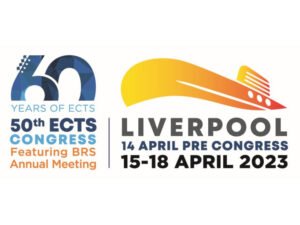
ECTS-ASBMR Debate: “This House believes no further trials of vitamin D supplementation on bone outcomes are justified”
The need for additional trials on bone outcomes of vitamin D would be the topic of the Golden Femur ECTS-ASBMR Debate and it is anticipated to be very exciting. Two well-known experts in the field will cross their scientific swords and any prediction of the outcome is uncertain. The recent reports from large prospective trials have challenged both the extra-skeletal and the skeletal effects of vitamin D. Regarding the latter and namely the effect on fragility fractures, the “holy grail” of bone outcomes, vitamin D alone was not recently proved as an efficient intervention. It is these results that generated this year’s debate topic, and we really anticipate hearing from two real experts whether we have enough evidence from all past studies to reach a definite conclusion or need additional research. Prof. Roger Bouillon has devoted a great part of his outstanding career in the investigation of hormonal regulation of bone metabolism and vitamin D, and he will dispute the notion on behalf of ECTS. Prof. Heike Bischoff-Ferrari has an exceptional contribution in the field, particularly in the investigation of the role of vitamin D in the context of aging and musculoskeletal health, and she will support the notion on behalf of ASBMR. The winner of the debate would be the one who will manage to change the initial perception of most people in the audience. As every year this is certainly a “do not miss” session!
ECTS Basic Debate: “This house believes that osteocyte cell lines in culture do not give useful insights into osteocyte biology”
This year’s Basic Science Debate will focus on the usefulness of cell culture models to study osteocytes. You can anticipate an exciting and in-depth discussion between two long-standing experts in the bone field: for the motion: Prof. Dr. Lynda Bonewald, USA and against the motion: Prof. Dr. Jan Tuckermann, Germany. Lynda is a luminary of osteocytes. After being in the shadows for decades, Dr. Bonewald has revived research into osteocytes by developing accessible cell culture models that mimic osteocyte properties, such as their characteristic dendrite morphology and their mechanosensing abilities. These, and other osteocytic cell lines have been used by numerous researchers to uncover novel functions of osteocytes, study their behavior to mechanical forces, and identify new signaling pathways that are relevant within the osteocytes, but also for communication to other cell types. However, how well do these osteocytic cell lines really mimic osteocytes in vivo that are embedded within lacunae in the mineralized tissue of bone and are in contact with neighboring cell types to communicate their status? These questions will be addressed by Jan Tuckermann, who has studied bone biology in mice for over 20 years. He knows exactly the value of research in living animals and their advantages when it comes to exploring complex cellular systems. After the presentation of the standpoints of the presenters for and against the motion, there will be time for short rebuttals of each speaker. Do not miss this opportunity to learn about osteocytes and the pros and cons of cell vs. animal models to study them.
